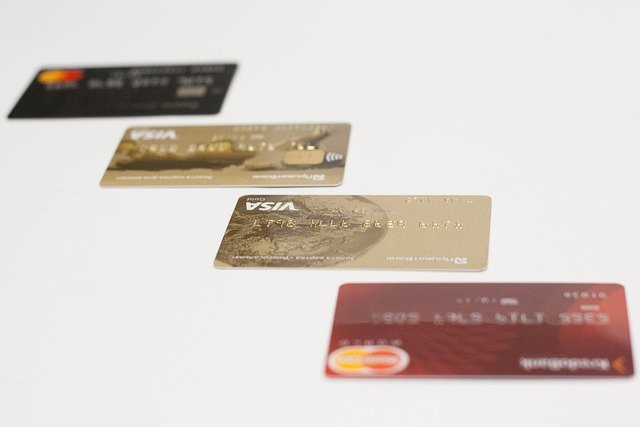How Coffee Machine Financing Plans Are Structured
Coffee machine financing may allow buyers to manage costs over time rather than paying in full upfront. Terms might vary based on machine type brand and repayment length with interest rates and total cost shaping the overall affordability of the plan.

Overview of Coffee Machine Financing Basics
Coffee machine financing operates on similar principles to other equipment financing arrangements. Buyers enter into agreements with lenders or financing companies to purchase equipment through installment payments rather than upfront cash purchases. These arrangements typically involve credit applications, approval processes based on creditworthiness, and structured repayment schedules.
The financing process begins with determining your equipment needs and budget constraints. Lenders evaluate factors including credit scores, income stability, business revenue for commercial buyers, and debt-to-income ratios. Approval decisions depend on these financial indicators, with better credit profiles generally securing more favorable terms. Down payment requirements vary by lender and equipment value, ranging from zero down to 20% of the purchase price.
Most financing agreements include specific terms regarding equipment ownership, maintenance responsibilities, and early payoff options. Buyers should carefully review contract details, including any prepayment penalties or late payment fees that may apply throughout the financing period.
Types of Coffee Machine Financing Options
Several financing structures cater to different buyer preferences and financial circumstances. Equipment loans represent the most straightforward option, providing funds to purchase coffee machines outright while establishing monthly payment obligations. These loans typically offer fixed interest rates and predictable payment schedules, making budgeting easier for borrowers.
Lease financing presents an alternative approach, allowing users to access equipment without ownership responsibilities. Operating leases function similarly to rental agreements, with monthly payments covering equipment usage rights. Capital leases blend leasing and purchasing elements, often including purchase options at lease end for nominal fees.
Credit lines and business credit cards offer flexible financing for smaller equipment purchases. These options provide revolving credit that borrowers can use as needed, though interest rates may be higher than traditional equipment loans. Some coffee machine retailers offer in-house financing programs with promotional terms, such as deferred interest periods or reduced rates for qualified buyers.
Equipment financing companies specialize in coffee machine and restaurant equipment purchases, often providing streamlined approval processes and industry-specific expertise. Banks and credit unions also offer equipment financing, potentially providing better rates for existing customers with established banking relationships.
Understanding Interest Rates in Financing Plans
Interest rates significantly impact the total cost of financed coffee machines, making rate comparison essential for smart purchasing decisions. Fixed rates remain constant throughout the loan term, providing payment predictability and protection against rate increases. Variable rates fluctuate based on market conditions, potentially offering lower initial costs but creating payment uncertainty.
Several factors influence the interest rates offered to borrowers. Credit scores play a primary role, with excellent credit typically securing rates between 6-12% for equipment financing. Fair or poor credit may result in rates exceeding 20%, significantly increasing total purchase costs. Loan terms also affect rates, with longer repayment periods often carrying higher interest charges.
Down payment amounts can influence rate offerings, as larger down payments reduce lender risk and may qualify buyers for better terms. Business financing may offer different rate structures than personal financing, depending on business creditworthiness and revenue documentation. Secured financing, where the coffee machine serves as collateral, typically provides lower rates than unsecured options.
Promotional financing offers temporary rate advantages, such as 0% interest for specific periods. However, buyers should understand when promotional rates expire and what standard rates apply afterward. Comparing annual percentage rates (APR) provides more accurate cost comparisons than simple interest rates, as APR includes additional fees and charges associated with financing.
| Provider | Equipment Type | Estimated Monthly Payment* | Interest Rate Range |
|---|---|---|---|
| Wells Fargo Equipment Finance | Commercial Coffee Machines ($5,000) | $95-$140 | 7.5%-15% |
| Balboa Capital | Espresso Equipment ($3,000) | $70-$110 | 8%-18% |
| Lease Finance Group | Coffee Shop Equipment ($10,000) | $180-$280 | 6.5%-14% |
| Equipment Financing Solutions | Home/Office Machines ($1,500) | $35-$55 | 9%-20% |
*Prices, rates, or cost estimates mentioned in this article are based on the latest available information but may change over time. Independent research is advised before making financial decisions.
Financing terms typically range from 12 to 60 months for coffee machine purchases, with longer terms reducing monthly payments but increasing total interest costs. Buyers should calculate total financing costs, including principal, interest, and fees, to determine actual equipment costs. Online calculators can help estimate monthly payments and total costs based on different rate and term scenarios.
Some lenders offer rate discounts for automatic payment enrollment, existing customer relationships, or multiple equipment purchases. Shopping around with different lenders often reveals significant rate variations, potentially saving hundreds of dollars over the financing term. Pre-qualification processes allow buyers to compare offers without affecting credit scores through hard inquiries.
The structured approach to coffee machine financing provides accessible pathways to equipment ownership while accommodating various financial situations. Understanding basic financing principles, available option types, and interest rate factors enables informed decision-making that aligns with budget constraints and business needs. Careful comparison shopping and thorough contract review ensure buyers secure appropriate financing terms that support their coffee service goals without creating unnecessary financial strain.




